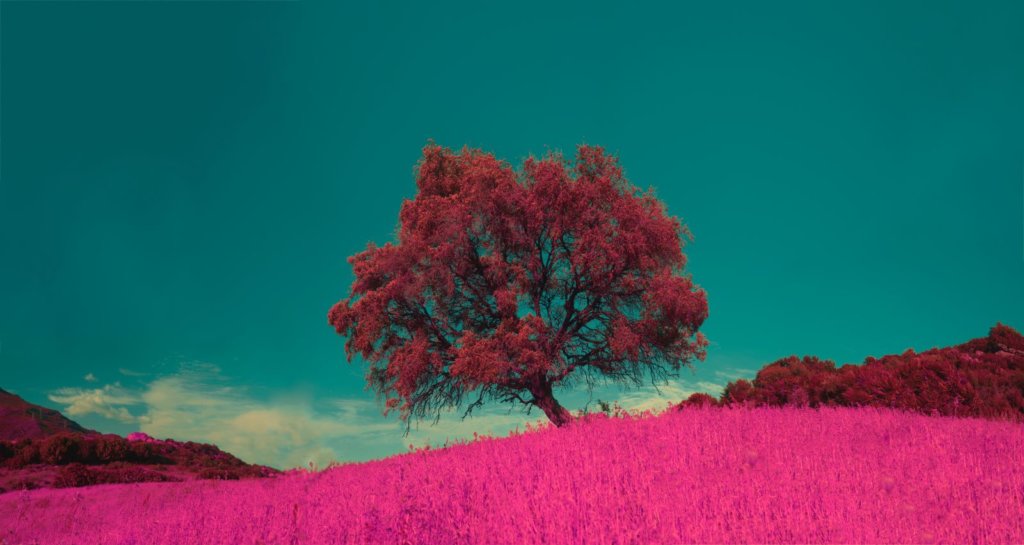I notice people seem to feel despondent and hopeless when it comes to climate change. They’re saying things like, “This is the coldest summer for the rest of your life,” and “Better move to the Great Lakes region because it will be the only place to get fresh water.” I get it. When there’s an onslaught of terrible news stories, such as flooding in Pakistan or the U.S., record heatwaves, epic fires, etc., it’s easy to feel gloomy. You’re more than welcome to feel depressed or live in dread regarding climate change if that works for you, but it doesn’t work for me.
You know how neuroscientists now say happiness is something you have to work on? That you have to engage in daily activities to boost your happiness because it’s not something that just happens on its own? I think the same is true with hope. Emily Dickinson told us hope is a thing with feathers that doesn’t ask for a crumb, but I think she’s wrong. I think hope is a flame that can easily blow out if you don’t tend to it.
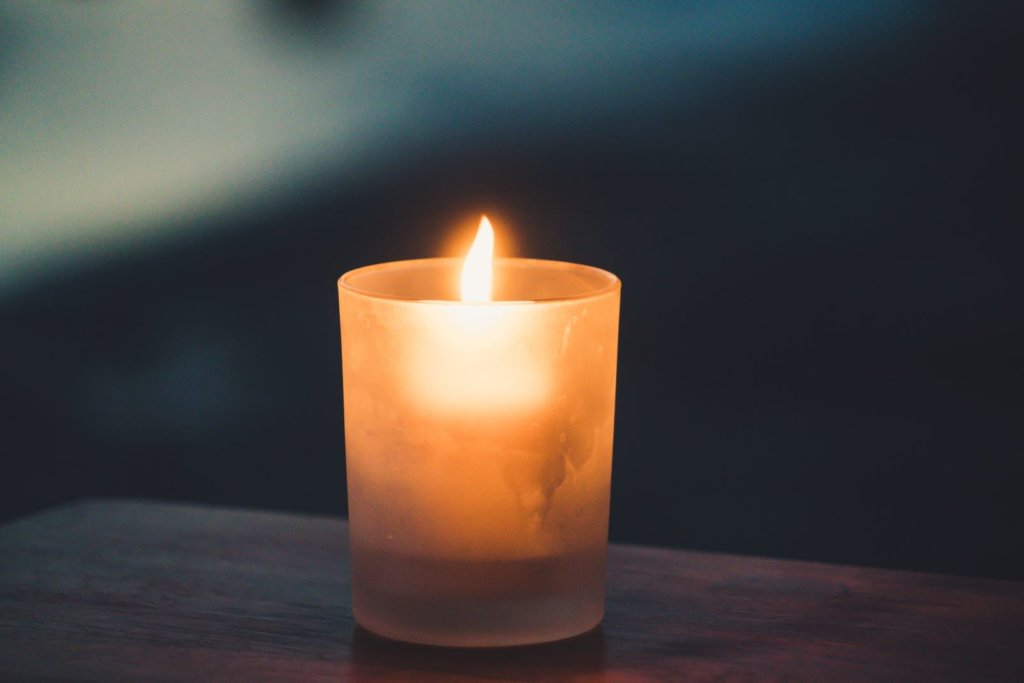
Hope is a flame. Photo by Paolo Nicolello on Unsplash
What gives me hope amidst the news of one catastrophe after another is that nature evolves. Did you know researchers at the University of Queensland have found a species of worm that eats Styrofoam? The common Zophobas morio “super worm” eats through Styrofoam thanks to a bacterial enzyme in its gut. There’s also a bacteria that eats a certain type of plastic. Nature is working with us to solve the problem of climate change. We’re not in this alone.
I also think about a quote from my spiritual teacher. He said, “Difficulties can never be greater than your capacity to solve them.” I take heart from that and look for evidence where I can. For instance, just recently, scientists at Northwestern University have done the “seemingly impossible” and destroyed PFAS using low temperature and cheap products. The BBC reports, “The reason PFAS have historically been so difficult to destroy is because they contain many carbon and fluorine bonds – the strongest bonds in organic chemistry.” But researchers have snapped that bond, which is fantastic news.
We also have examples of the global community tackling climate-related challenges. In the 90s, I remember a lot of concern about the hole in the ozone layer. Scientists warned that if the hole got bigger, it would cause “rises in skin cancer and cataracts in humans, harm to plant growth, agricultural crops and animals, and reproductive problems in fish, crabs, frogs and phytoplankton, the basis of the marine food chain,” according to the BBC. What did we do? We banned CFCs, the chemicals that ripped a hole in the ozone in the first place. And you know what happened? The hole closed up. It’s no longer a problem. In other words, we can band together to make big changes for the planet and we have. There’s already precedence for it.
When I feel down about the state of the world, I remind myself there is reason to have hope. Sometimes that hope is like a mere flicker, but I’d rather the flame was so minuscule you can barely detect it than for it to be extinguished altogether. Wouldn’t you?
I dream of a world where we recognize hope requires tending to. A world where we understand it’s easy to fall into dismay about the state of the world, but if you look around, you’ll notice cause for hope. A world where we pay attention to those stories and all work together to keep climate change from getting worse.
Another world is not only possible, it’s probable.
A little more than a year ago, I wrote a post called “Plants and People Need Pruning.” It was about letting go of relationships and recognizing it’s really hard for me. Part of the reason it’s hard is that all too often I don’t get a proper goodbye. The people that mattered to me – friends, partners, potential partners – just stopped talking to me. They were in my life one day and gone the next. Sometimes it wasn’t so dramatic. Sometimes they pulled a “slow fade” – gradually our communication became less and less until it disappeared altogether.
Some of my friends, especially the ones from college, I speak to on a less frequent basis because we live in different time zones, but I still consider them my friends. I understand relationships have ebbs and flows so this post isn’t about them, but rather the other relationships that are well and truly dead. Almost all of those relationships never received a proper goodbye.
When Gwyneth Paltrow and Chris Martin touted their conscious uncoupling, the public mocked them mercilessly. It sounded like a hokey thing made up by celebrities. So much ire and derision were spewed in their direction that Paltrow said, “The intensity of the response saw me bury my head in the sand deeper than I ever had in my very public life.” I suspect that’s because many people are uncomfortable with goodbyes and don’t know how to do them because it’s awkward or challenging. I understand. But push past that discomfort because a conscious uncoupling, or whatever you want to call it, can be a tremendous gift you give to yourself and someone else.
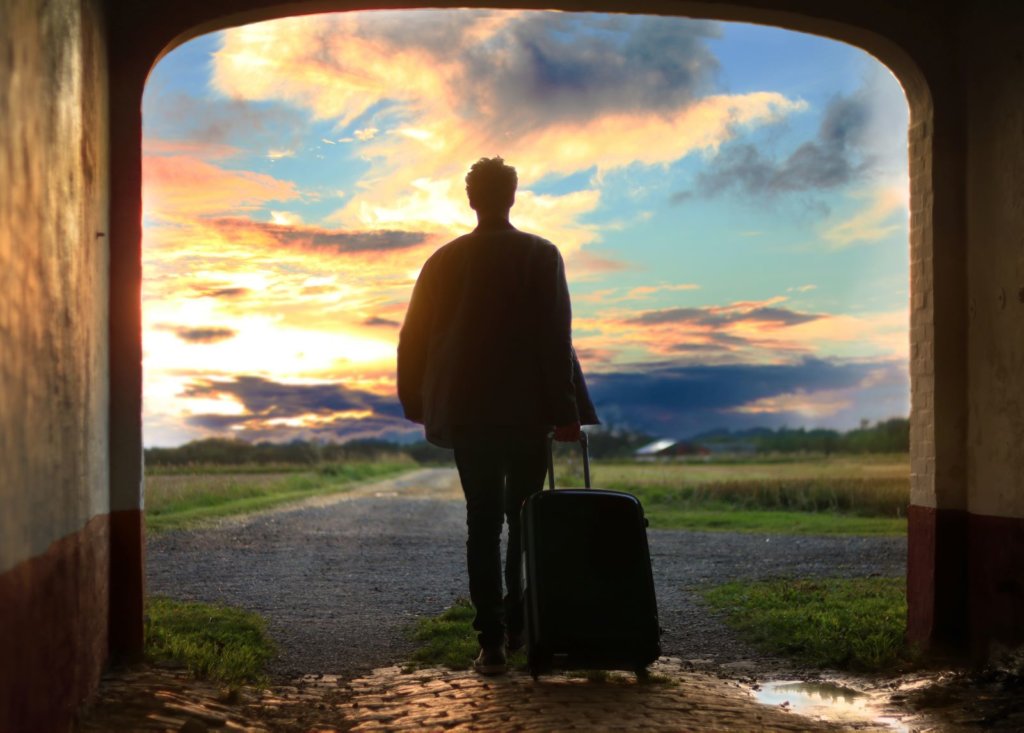
To say goodbye means to open to a new journey. Photo by Mantas Hesthaven on Unsplash
On Thursday, I said goodbye to my therapist/coach of eight years. This is a man I spoke with nearly every week. He knows everything about me and has seen me through soooo much. I’m not the same person I was as a result of our work together. However, I reached a point where I outgrew the need to see him every week. Instead of saying, “OK, bye, good luck with your life,” we had a termination session.
I told him all the things I appreciated about our time together, how I changed, what I will miss, and more. He did the same for me. I cried, a lot, but when we said goodbye, I didn’t feel an intense ache in my chest like I normally do. I didn’t feel hurt or wounded. I wasn’t left wondering if I matter to him or if he knows he matters to me. There were no question marks because we expressed it all. We honored our relationship and that’s exactly what I’ve been longing for all these years. It was healing to finally, FINALLY have a proper goodbye.
My spiritual teacher says, “A 5-year-old child is transformed in due course into a 15-year-old boy. In 10 years, the child becomes a boy. Thereafter, you will never be able to find the body of the 5-year-old child. So, the child’s body has certainly died.” He then goes on to mention the boy growing into a man, and then hitting middle age, then old age, until he finally dies and says, “The rest of the changes we do not call death; but in fact, all the changes qualify as death.”
If all changes qualify as death, why not hold little funerals for them? Why not grieve for them and give them proper homage and respect like we would for a no-longer-in-a-physical-body death? You might find that’s exactly what you need. I know I did.
I dream of a world where we say a proper goodbye to people. A world where we practice that not only for those on their deathbed but also for the living. A world where we lean into the possibly uncomfortable, awkward, or challenging situation of saying a conscious goodbye to someone because it’s beneficial for them and for us.
Another world is not only possible, it’s probable.
Several years ago I watched a Ted Talk by Elizabeth Gilbert on extreme success and extreme failure. She made the point that both positions catapult you out of your normal range of emotion and so both are hard to process. Both feel surreal because they aren’t everyday occurrences. Her point is resonating with me because I just got back from my sister’s wedding.
Not only did I see extended family for the first time since 2015 or 2016, but I also saw my sister’s friends from middle and high school. These are people I know too, although obviously not as well. They aren’t my friends but they are people who were tangentially in my life. We reconnected for a brief moment in time, a few hours, and that was it. Not only did I see them, but friends Rosie and I have in common, and, of course, immediate family, who don’t live close to me. It’s hard, really hard, to connect with people who mean something to me and then separate again.
As much as I would like to maintain relationships with all the people I love and care about, it’s not possible. Having a weekend where that happens to a degree is difficult because I get a small taste of what I want, but just that small taste.
Maybe other people have already made peace with this and don’t really care, but that’s not me. My Sanskrit name, Radha, means the personification of love so in my ideal world, I’d be close with every person I hold in my heart. I’d see all of them regularly. We’d be up to date on each other’s lives. We’d have adventures together. We’d travel together. We’d be integrally connected. But that doesn’t happen.
Maybe instead of trying to force the impossible, I can embrace the ephemeral. This is why people talk about living in the moment, right? Because this moment and the next and the next aren’t repeatable? As much as we try to recreate experiences, we can’t, can we? That means sometimes life will take you far and wide. You’ll experience moments that are so surreal they’re hard to comprehend. It may be extreme success, dismal failure, or the convergence of multiple people from various points in your life. Whatever it is, I’ll bet you’ll have surreal experiences too.
I don’t have a lesson here. I don’t have any advice. The best I can do is recognize sometimes I won’t be able to integrate certain experiences because they’re so outside the range of normal that I can’t. And that’s OK. That, too, is what it means to be alive. Embracing the surreal is just a part of life.
I dream of a world where we recognize we will have moments that aren’t in our normal range. A world where we understand some things will feel surreal. A world where we embrace that, accept that reality and make peace with it.
Another world is not only possible, it’s probable.
I feel unsettled after learning what happened to novelist Salman Rushdie on Friday. If you’re unaware, he was stabbed as he prepared to give a lecture in upstate New York. He suffered wounds to the neck and abdomen and is thankfully on the road to recovery, according to his agent.
It’s believed the attack is in connection to Rushdie’s late-80s book The Satanic Verses, which many Muslims consider blasphemous as it mocked or at least contained mocking references to the Prophet Muhammad and other aspects of Islam. There’s also a character based on the Supreme Leader of Iran and after it was published, Iranian leader Ayatollah Ruhollah Khomeini issued a fatwa, or edict, calling for Rushdie’s death.
I’m upset by multiple things. One, the stabbing occurred during a lecture, an event you would think was safe and peaceful. Two, multiple people were so enraged by words, not actions, words, they sought to kill someone. That’s pretty intense. And problematic because to quote Rushdie, “The moment you say that any idea system is sacred, whether it’s a religious belief system or a secular ideology, the moment you declare a set of ideas to be immune from criticism, satire, derision, or contempt, freedom of thought becomes impossible.”
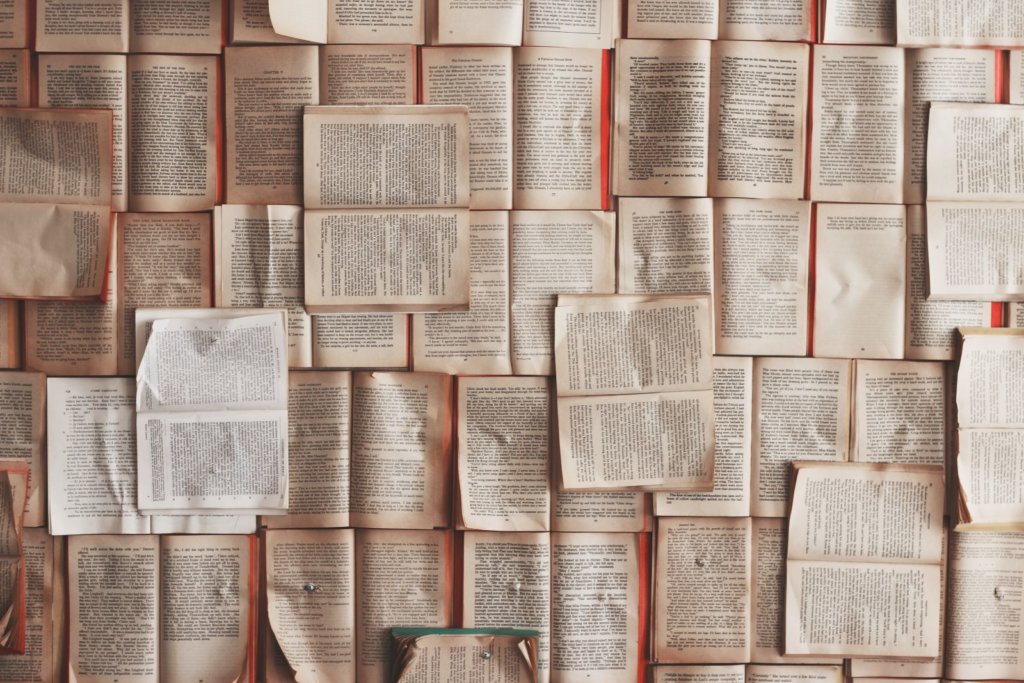
Critical thinking is key. Photo by Patrick Tomasso on Unsplash
Freedom of thought becomes impossible because instead, people sink into dogma. Dogma is thinking without logic or reasoning. And once a person does that, they start doing something because someone else told them to, which is dangerous because they can become easily manipulated by others. They fall prey to schemes and cause real harm to themselves and others.
Dogma can also be the reverse, by the way. It can be disregarding what a certain person, group, or organization says just because of their identity. My spiritual teacher says, “[D]ogma has had an extremely negative influence on ordinary people .… By arousing narrow sentiments, the adherents of dogma hope to fulfill their selfish aspirations … The followers of dogma do not want people to tread the path of rationality … The worst propounders of dogma – the kings of dogma – do not want people to develop mental clarity. They do not want the penetrating illumination of the sun’s light to pierce through the mists of dogma. They do not want people to bathe in the radiant light of the day and stand under the clear, unclouded sky.”
It’s also the case we fall prey to dogma internally, without someone acting as a puppeteer. We see this on social media with “stans,” or super fans that are overzealous and obsessive. They think the person they follow can do no wrong, and when the person inevitably makes a mistake, because, hi, they’re human, some stans dig their heels in and defend the person. People who aren’t super fans will engage in a takedown and explain why the person is trash and should be “canceled” or stop receiving support. From Merriam-Webster, “The reason for cancellation can vary, but it usually is due to the person in question having expressed an objectionable opinion, or having conducted themselves in a way that is unacceptable so that continuing to patronize that person’s work leaves a bitter taste.”
I understand that reaction and sometimes I think it’s warranted. However, this approach misses nuance. Every person is both a hero and a villain. Every person is capable of good and evil. It doesn’t make sense to follow a person as if they are an infallible, perfect human being. I know it’s funny to quote my spiritual teacher again here, but even he said, “Even if a young boy says something logical, it should be accepted, and if the Supreme Creator Brahma says something illogical, it should be rejected as rubbish.”
I agree. Use your brain. Dogma can be alluring because it’s easy and doesn’t require effort, but you have a brain and if you don’t use it, that’s not beneficial for anyone.
I dream of a world where we recognize no idea, person, or belief system is above scrutiny. A world where we don’t accept someone else’s words hook, line, and sinker, no matter who they are. A world where we use logic and reason to make the world a better place and bathe in the radiant light of the day.
Another world is not only possible, it’s probable.
If you’re anything like me, you’ve heard over and over again you need to figure things out. In the U.S., we’re fond of “pulling ourselves up by our bootstraps,” going out there and “seizing the day,” and just generally “making stuff happen.” There’s this idea if you aren’t hustling, you’re doomed to live an unsatisfying and unfulfilling life. It’s exhausting, frankly. But what if there’s another way to move through the world? An easier way?
Here’s how that’s showed up for me. Lately, I’ve been craving in-person connection, especially the group kind. The pandemic has decimated my communities by either transitioning to meeting online or halting altogether. I’m just not doing the things I was before and boy am I feeling it. Being the compulsive person that I am, last week I scoured Meetup for in-person groups, determined to find fun things to do with other people. I found a few groups, but given my interests, most of them require hiking and I’m still healing from a foot injury. They’re good for future me, but not present me.

I love how her bag says “subtle” Photo by Dan Burton on Unsplash
Magically, unexpectedly, two of the companies I freelance for are having dinners this coming week and invited me to attend. As someone who is a solopreneur, I often declare I don’t and won’t meet anyone through work because I don’t have colleagues. There are no water cooler moments or lunches with team members. Therefore, I find it hilarious that I’ll be socializing with coworkers of sorts this week, just when I needed it. Problem of in-person connection solved and I didn’t have to do anything except say, “yes, I’ll be there.”
I bring this up because it reminds me sometimes, we don’t have to do anything. Sometimes we have a desire and the universe creates circumstances and events to fulfill that desire. It’s comforting for me to know I’m not alone here, in charge of every little thing in my life. Instead, there’s a benevolent, loving force in the world that acts on my behalf. I didn’t do anything to create in-person connection and in fact, my attempts failed for one reason or another. I didn’t “figure anything out.” The universe did that for me. What a relief.
My spiritual teacher says every being evolves because Cosmic Consciousness loves them, and the force of that intense love draws them toward that consciousness. “All the entities of this universe are mutually attracting all other entities. But [Cosmic Consciousness] is attracting all entities by dint of His love for all, by dint of His personal relationship with all,” my teacher says.
In other words, yeah, the universe wants to support me, wants to help me out to bring me closer to the Supreme Entity, the consciousness at the center of everything. I don’t have to figure everything out, and in fact, it’s better if I don’t even try and instead, let myself be loved and cared for by something greater than me.
I dream of a world where we recognize there is a benevolent force in the universe loving us, guiding us. A world where we understand undergirding everything is a current of love drawing us closer and closer. A world where we remember we don’t have to figure everything out because we’re in a relationship with an entity that’s more powerful than us anyway.
Another world is not only possible, it’s probable.
I keep thinking about a post I wrote for a now-defunct website called Quarterlette.com in 2012. It was about opportunity beating down your door. What follows is an edited version of that post. Enjoy.
Growing up I heard the expression, “Opportunity only knocks once,” and I really took it to heart. I took advantage of every opportunity that came my way because I was scared it would slip away like a snowflake melting in the sun. Except as we know, when snowflakes melt, they come back again when it snows. Very rarely does it snow once and that’s it forever and always. Snowflakes are like opportunities in that they come around again if we only wait for them.
Reverend Michael Beckwith has a quote, “Opportunity doesn’t knock once – it will beat down your door!” When I heard him say that years ago, I laughed because I certainly found it to be true for me. If something is meant to be, the universe will make darn sure you get the message and will create situations for you to take advantage of that opportunity.
As a freshman in college, I attended UNC-Chapel Hill for a semester. It was a bad decision, not because Carolina is a horrible school, but because I didn’t fit in there. Forcing myself to go to Carolina was like forcing an 8-year-old to eat canned spinach – it can be done, but it’s not enjoyable. I toyed with the idea of going to UC Berkeley because from what I knew about Berkeley, it seemed more my scene – full of vegetarians, hippies, and spiritual seekers. Ultimately though, I decided to go to American University in Washington, D.C.
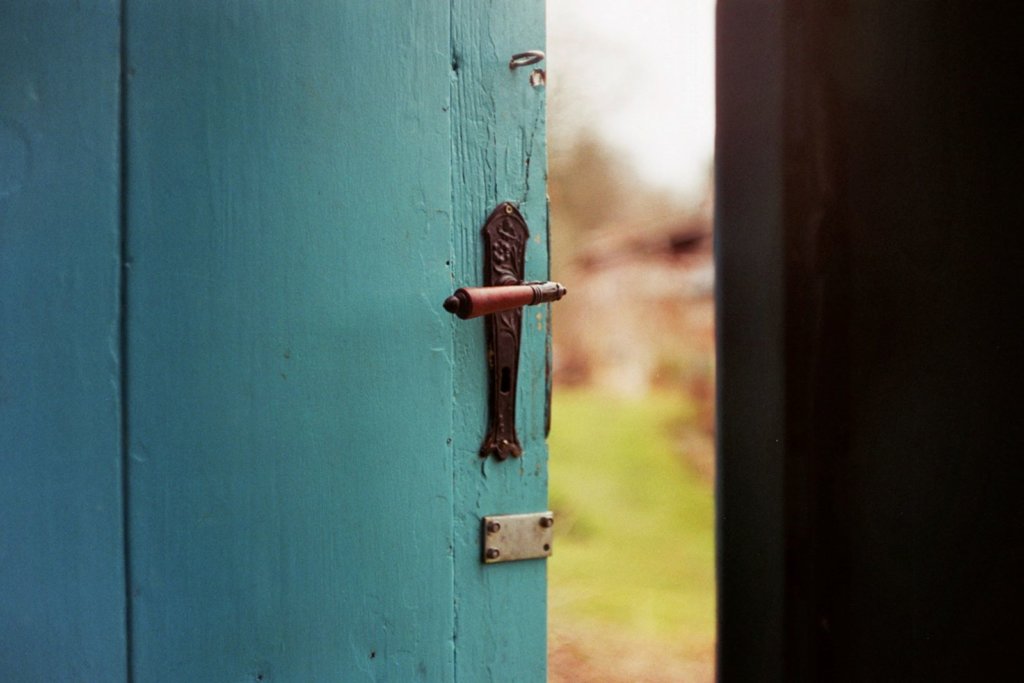
Opportunity knocks more than once. Photo by Jan Tinneberg on Unsplash
I loved Washington, D.C., and decided to stay there after graduation. It’s a small city in terms of size but big in terms of what it has to offer. I had a large contingent of friends there (still do) and even managed to score a great apartment on Wisconsin Avenue, which meant I could gaze at the National Cathedral from my living room window. The National Cathedral is to this day one of my favorite places in the world primarily because it has a piece of the moon embedded in a stained-glass window.
Life was pretty good, only, I hated my job. Like, really hated my job. Like, complained-every-day-and-dreaded-waking-up-in-the-morning hated it. This was no fault of the company or the people. It was another case of canned spinach – great for some people but distasteful for me.
I had every intention of quitting and finding something else in the area, except opportunity came a knockin’ – or in this case, stampeding. I really have no idea why but while at a yoga and meditation retreat, I talked to one of the participants about his hometown, San Francisco. That conversation planted a bug in my ear and I found myself contemplating moving to San Francisco. I immediately decided it was a terrible idea because I didn’t know anybody, and like I said, life was pretty good for me in Washington, D.C., but the universe doesn’t give up that easily.
The very minute I said, “Nah, I’ll stick around in D.C.,” I saw someone reading the Yoga Journal, a magazine based in San Francisco and one I aspired to work for. It startled me because seeing this woman reading her magazine felt like a sign, as innocuous as it was. However, I still wasn’t convinced moving to San Francisco was in my best interest. Of course, from then on San Francisco became ubiquitous. While walking down the street in D.C., I saw San Francisco hats, San Francisco t-shirts. I met people left and right who were from San Francisco. When something shows up that many times it can’t be ignored. Opportunity was beating down my door. I finally said, “OK, I’ll do it.”
By now you know what happened – I settled here. The Bay Area has been my home for 14 years. When I start to worry that maybe I missed the metaphorical boat, that I should have said “yes” to something instead of “no,” I remind myself the universe will conspire to bring what’s mine to me over and over again.
I dream of a world where we remember opportunity doesn’t knock once, it will beat down your door. A world where we recognize what’s ours is ours and the universe will create situations to demonstrate that over and over again. A world where we have trust and faith that we will never miss the metaphorical boat because if it’s meant to be, we’ll board another ship.
Another world is not only possible, it’s probable.
Oftentimes when I hear about terrible news events – fires in Europe, flooding in the U.S., mass shootings, etc. – life feels like too much. There are too many things wrong with the world and how are we possibly going to fix them all? It’s overwhelming to contemplate and easy to fall into despair and cynicism. I see a lot of that online: “We’re all screwed! The world is going to end!” I get it. I’m tempted to fall into that place myself, but then I remember something Rabbi Tarfon, who lived almost 2,000 (!) years ago said: “It is not your duty to finish the work, but neither are you at liberty to abandon it.”
A more poetic way to phrase that courtesy of Rabbi Tirzah Firestone is, “You are not expected to complete the task of repairing the world. But neither are you allowed to put it down.” We’re not here to fix every problem, tackle every big issue. We can’t. It’s impossible. What we’re facing is too vast, but what we can do is be one part of the human relay race.
Have you seen that track event where one runner has a baton and then they pass it to the next person? That’s what I think humanity is like. We’re each carrying a baton that we give to the person ahead of us. We do that over and over again until eventually, humanity is in a different place than it was before. But if we don’t hold up our end of the bargain, if we don’t run with our baton, how can anything change?
I’m reminded of a quote from my spiritual teacher who says, “There are some people who are pessimistic. They say that the society around us is very bleak … Pessimists say this because they have never made any detailed study of human history, nor do they care to. Had they done so, they would certainly be optimistic, because if they had looked carefully at the symptoms of pause, they would have realized that significant preparations were being made for the subsequent phase of speed. So under no circumstances should human beings be pessimistic. That is why I am always an incorrigible optimist, because I know that optimism is life.”
I’m not Pollyanna over here, I know what’s happening in the world and I know it’s incredibly challenging. But I also recognize it’s my duty as someone who is alive right now to not put down the task of repairing the world. What that means for me is different than what it means for you, but we are all here for a reason. We are all alive at this time in this life not merely to take up space but to play a role in this great drama.
Hafiz said it so beautifully in the poem “The Place Where You Are Now” that I’m going to quote a portion of:
“This place where you are right now
God circled on a map for you.
Wherever your eyes and arms and heart can move
Against the earth and the sky,
The Beloved has bowed there –
Our Beloved has bowed there knowing
You were coming.”
The Beloved knew we were coming to be a part of a giant human relay race where we do one thing that someone else carries forward, that they carry forward, that someone else picks up ad infinitum. But it’s up to us to say “yes” to the task.
I dream of a world where we recognize we aren’t going to solve all the world’s problems ourselves. Instead, we are only one part of the solution like a human relay race. A world where we maintain optimism in the face of extreme difficulties because we’ve studied human history. A world where we understand we all play a part in repairing the world.
Another world is not only possible, it’s probable.
My body has been through the wringer in the past week. I was in Zion National Park until Wednesday and wow was it grueling for me. I don’t sweat easily or profusely and as a consequence am prone to heat-related issues like heat stroke and heat rash. Luckily, I avoided the former in the 104-degree weather but contracted the latter. My forearms and upper thighs are covered in tiny, angry, red bumps.
Also, I hiked the Narrows, which is a gorgeous trail through a slot canyon. The trail requires hiking through a river upstream and maneuvering large, slippery rocks. I rented hiking boots, neoprene socks, and a hiking pole to help me navigate but I injured my right big toe, despite my precautions. It’s not broken but it’s swollen and I can’t walk properly. In other words, I’m not in the optimal physical condition right now.
I’ve written over and over again about how the universe is always communicating with us, but something I talk about less frequently is how our bodies do the same. Sometimes I roll my eyes when I hear that because I don’t always know what my body is saying and it feels too irritating or complicated to figure it out. However, as someone who is extremely psychosomatic, meaning someone with a very close mind-body relationship, I know my body communicates with me all the time whether I’m listening or not.

This image looks so dreamy. Photo by Saltanat Zhursinbek on Unsplash
I want to mention here I know bodies are complicated and mysterious. As much as we’ve been told, “Eat right, exercise, and you’ll be fine,” that’s not the whole truth. There are so many factors that affect our physical bodies. Diet, yes, but also sleep, stress, lifestyle, trauma, genetics, and more. Because of that, it can be SO HARD to figure out what the body is communicating. Sometimes though it’s easy. In the case of my sprained toe, I think the message is, “Slow down, rest.”
I have a tendency to cram as much as possible into the day and week, perpetually going to my limit, but injuring myself means I can’t do that anymore. Last week I wrote about how the body is a road map of our lives, but it’s not only that. It also acts as our canary in a coal mine. Just a reminder to underscore my point, I think it’s helpful to remember how this idiom came about. From about 1911 until 1986, miners used to carry caged canaries into the tunnels with them, and if dangerous gases such as carbon monoxide accumulated in the mine, the gases would kill the canary before killing the miners. If the canary died, the miners were warned to exit the tunnels immediately.
That’s what our bodies are like. They give us signals like rashes or twinges or soreness to say, “Hey, something is going on here.” Sometimes it’s easy to figure out why – like developing a rash due to a new skin lotion – but other times it’s not. I can’t speak for everyone, but I can speak for myself and say I know my body is always communicating with me. The question is, am I willing to listen?
I dream of a world where we pay attention to our bodies. A world where we understand oftentimes the body is talking to us, communicating without language. A world where we do our best to decipher those cryptic messages and act accordingly.
Another world is not only possible, it’s probable.
Lately, when I look at my body, I notice it’s the road map of my life. I see the scar on my right arm from when a swing collapsed with me on it. I notice the poison oak scars on my left forearm and the discoloration under my chin from car accident number one.
Normally I’d recoil from these marks, do my best to diminish them, cover them up, but at the moment, I’m looking at my body with fondness. It shows the story of my life, literally. My body demonstrates events that happened to me, memories I will always keep.
In our youth-obsessed culture, we strive to be unblemished and wrinkle-free. We see that as a sign of beauty, something to aspire to. But right now, I’m appreciating the evidence I’ve lived. Tomorrow I may wake up and scrunch my nose in protest of my scars. I might smear on creams and lotions to give myself a more youthful appearance, but today, I’m marveling at how I wear the story of my life. And if you’ve lived long enough, you are wearing yours too.
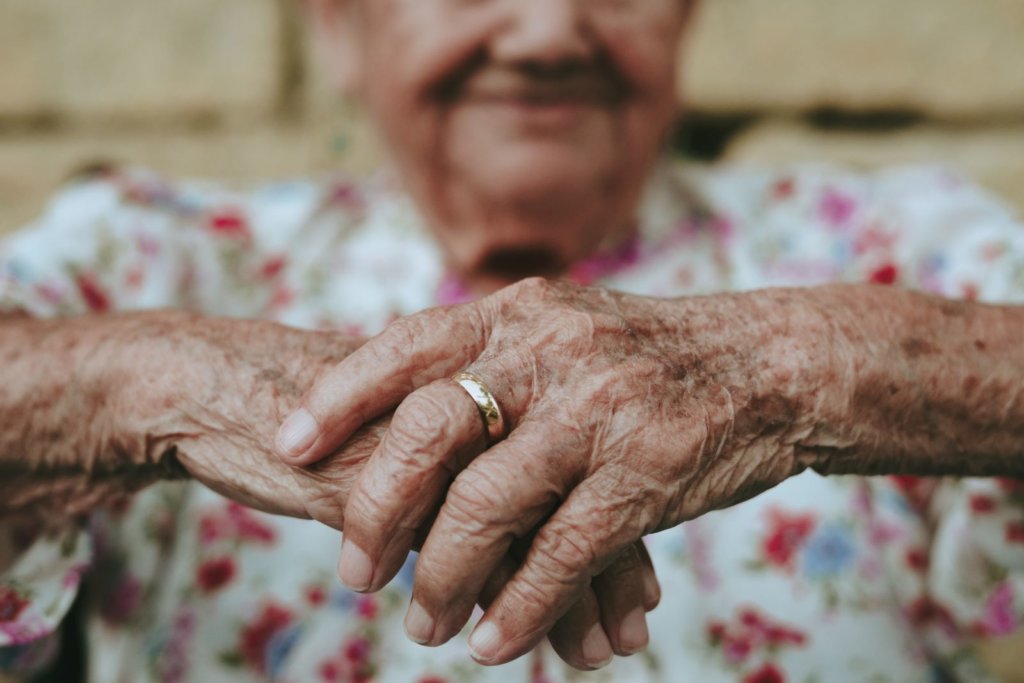
I love this lady’s hands. There’s so much here. Photo by Eduardo Barrios on Unsplash
Your body is a vessel not to be controlled but cherished. I know, for some that’s easier said than done. I get it – I’m subjected to the same messaging as anyone else, but for today, there’s something sweet about tracing the lines of my body and recalling this experience and that. In some ways I feel like a soldier recently returned from war, recounting what happened. You can do that with scars. There is often a story to tell.
There’s an honor to be in this body, to show the evidence of a life with trials and tribulations. There’s physical evidence that I’ve been through things and I’m still here. I’m proud of that.
At 37, I’m still young, but I’m not that young. No one would mistake me for a metaphorical spring chicken. And yet, instead of hiding my age, I’d like to approach each passing year not chasing my youth or lying about how old I am. I’d rather appreciate my age for the unique beauty it gives me. I didn’t think I would ever say that but here I am. Instead of fighting my body, I’m appreciating it for every scar, wrinkle, and fold. This body has been through so much and I don’t want to keep pretending otherwise.
Today anyway, I’m valuing this physical form for the way it currently looks and that to me is a miracle, one that I want for you too.
I dream of a world where we appreciate our bodies as they are. A world where we find our various scars exotic and beautiful because they reveal the road map of our lives. A world where instead of trying to reclaim our youth, we embrace the bodies we currently have with pride.
Another world is not only possible, it’s probable.
The other night I dreamt I was stuck with a roommate. For some reason, she couldn’t move out even though I wanted her to. She used my things, threw our house into disarray, and then managed to puncture a large hole in the ceiling. In short, NOT an ideal roommate. When I confronted her about the trouble she caused, she said, “It wasn’t me,” which was a blatant lie. Upon awakening, it seemed to me that dream is an excellent metaphor for what’s happening in the U.S. right now.
The Supreme Court is coming into our house and wreaking havoc left and right. I know not everyone agrees with me – they approve of what the court is doing and think the government should have less power, not more. I hear that. I understand valuing freedom and choice, but here’s the thing – that doesn’t work if people are only focused on themselves.
When you’re motivated by self-interest and greed, you make decisions that only benefit you and not the people around you. That’s a shortsighted way to live because as my spiritual teacher says over and over again, “One must not forget that collective welfare lies in individuals and individual welfare lies in collectivity. Without ensuring individual comforts through the proper provision of food, light, air, accommodation, and medical treatment, the welfare of the collective body can never be achieved. One will have to promote individual welfare motivated by the spirit of promoting collective welfare.”
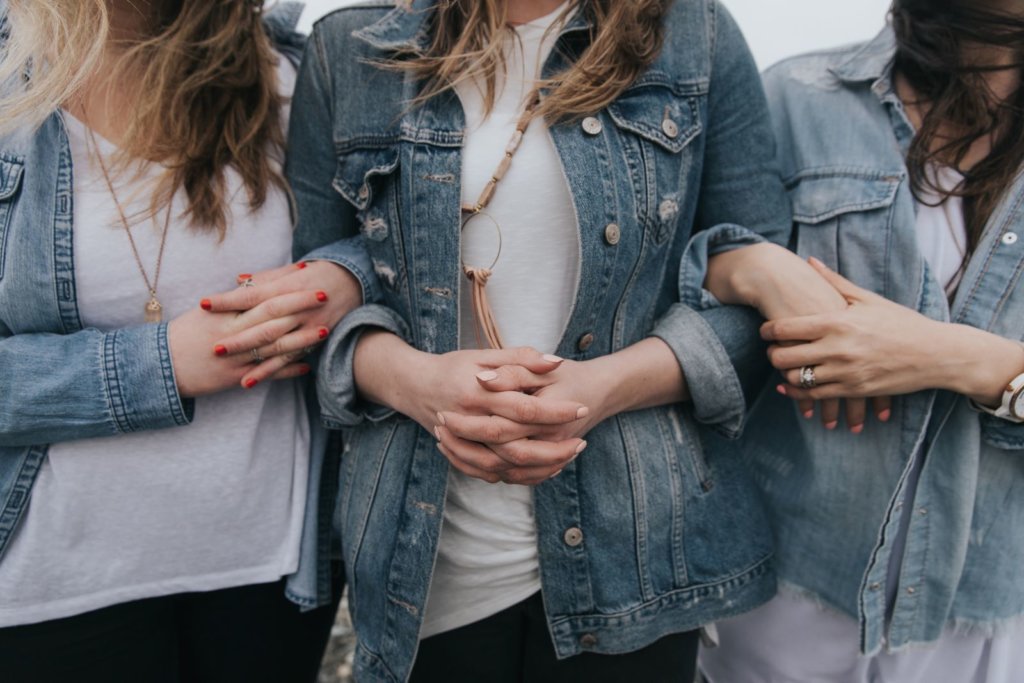
We are all linked together. Photo by Becca Tapert on Unsplash
We are all linked together but those in power keep refusing to see that. True leadership and a proper, functional government would not prize individual needs over collective needs because they understand what happens to someone else affects them too. Let’s take the company Amazon as an example. Did you know Amazon is burning through its workforce? In a leaked internal memo from June, research stated if the company maintains its status quo, it will run out of U.S. workers by 2024. The turnover rate is astronomical – 150% annually compared with an average of 64.6% in the retail sector, according to the Guardian. Amazon’s founder Jeff Bezos originally welcomed the high turnover because he feared long-term employees would slack off and cause a “march to mediocrity.” But now he’s worried.
Jeff Bezos and his ilk aren’t playing the long game. They aren’t remembering to study the pros and cons of each decision. Nor are they factoring in whether the decision contributes to the welfare of all. If the Supreme Court was doing that, they would understand that allowing states to decide what to do about abortions means some will outlaw it. And outlawing abortions means people with uteruses will resort to extreme measures to abort the fetus.
If the Supreme Court was factoring in the welfare of everyone, they would understand that forcing someone to have a child they do not want is a bad situation for everyone. Setting aside the abortion issue, if the Supreme Court was factoring in the welfare of everyone, they would uphold the ruling that the EPA can enforce gas emissions because hi, climate change really and truly affects everyone not just in the U.S. but around the world. The Supreme Court is not doing that and neither are many politicians.
There is an African proverb that says, “If you want to go fast, go alone. If you want to go far, go together.” We are not going to go far if we keep focusing on ourselves alone. We are not going to solve any of our serious societal problems if we’re thinking, “How can I benefit?” instead of “How can we benefit?” It seems to me we’re getting reminded of that over and over again right now. I hope that as outrage grows, more and more people will wake up to this idea of collective welfare because, wow, do we need it.
I dream of a world where we understand and promote the idea of collective welfare. A world where we recognize that if something doesn’t benefit as many people as possible, it should be rejected. A world where everyone starts thinking of not only themselves but others too because they recognize we are inextricably linked.
Another world is not only possible, it’s probable.
